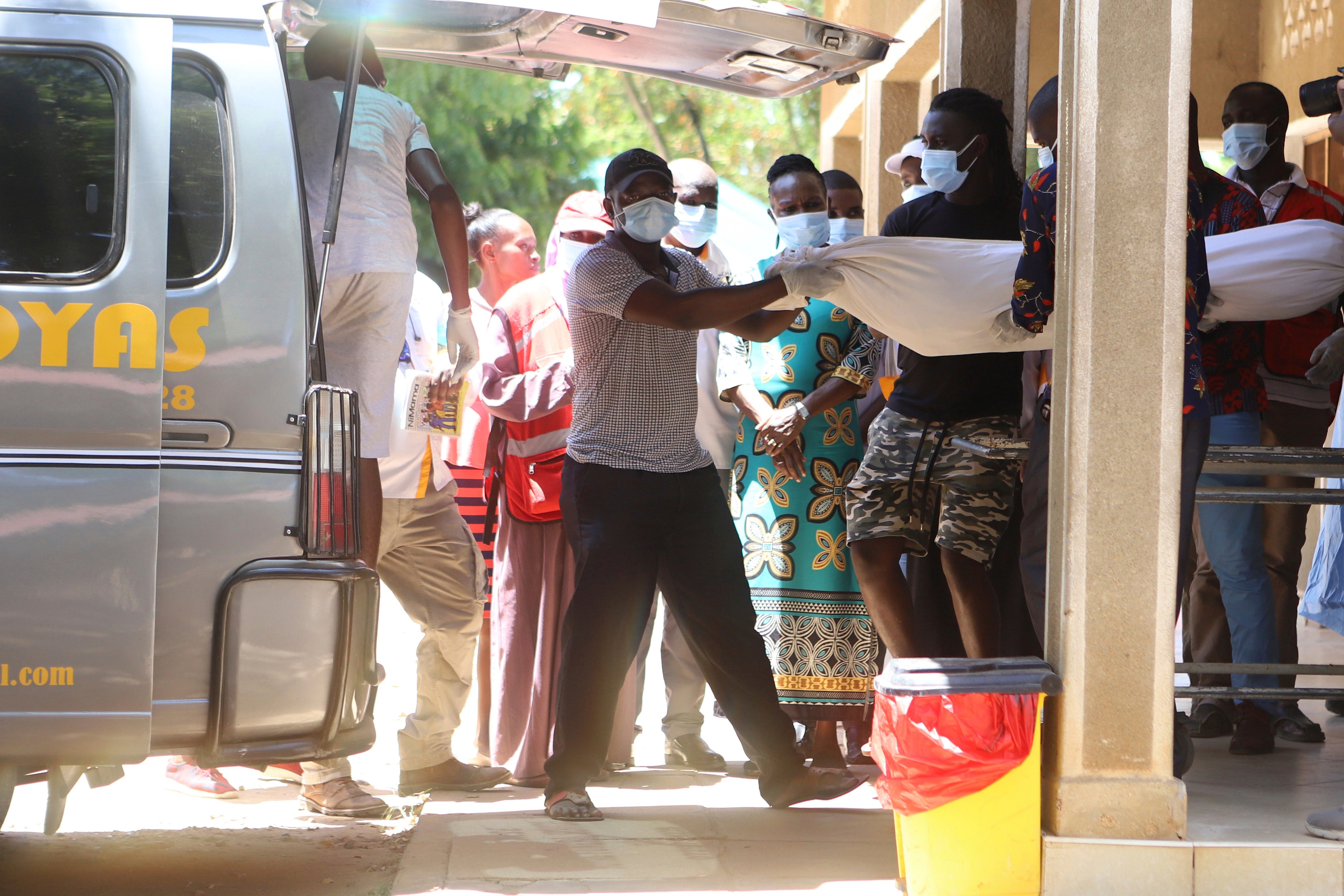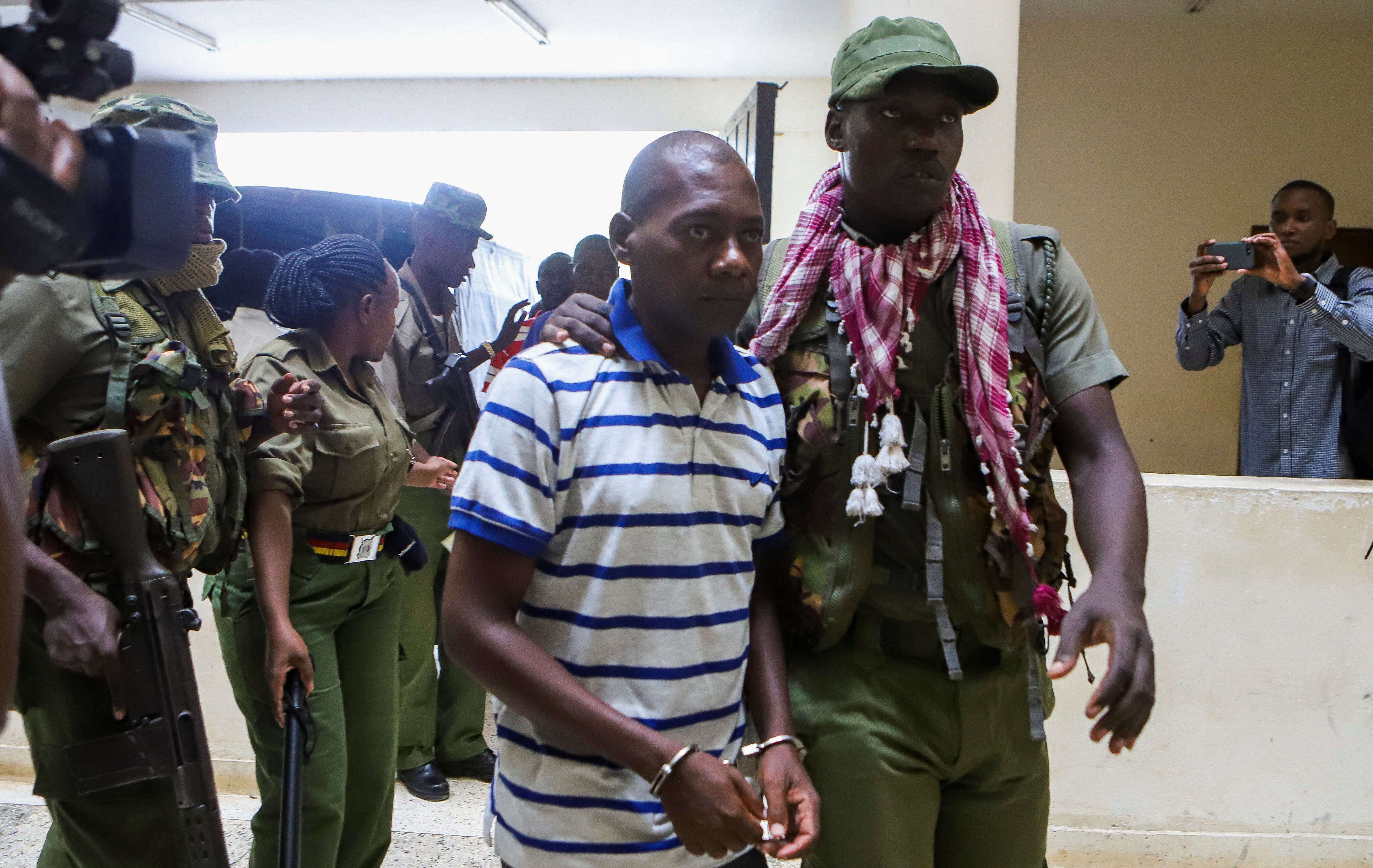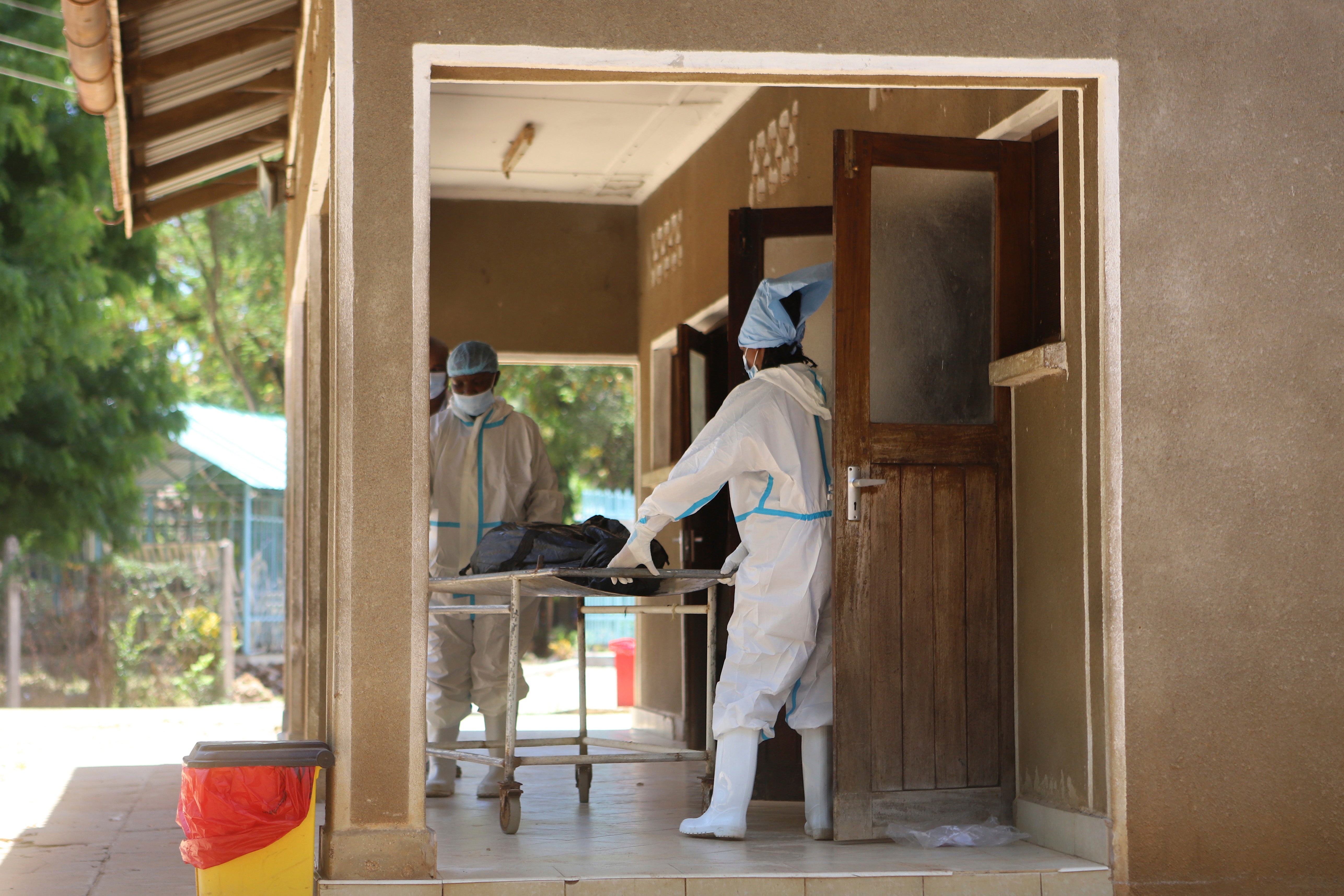Families weep as bodies of 400 starvation cult victims finally released
The bodies of more than 400 followers of the Good News International Church have been exhumed from the Shakahola forest

Your support helps us to tell the story
From reproductive rights to climate change to Big Tech, The Independent is on the ground when the story is developing. Whether it's investigating the financials of Elon Musk's pro-Trump PAC or producing our latest documentary, 'The A Word', which shines a light on the American women fighting for reproductive rights, we know how important it is to parse out the facts from the messaging.
At such a critical moment in US history, we need reporters on the ground. Your donation allows us to keep sending journalists to speak to both sides of the story.
The Independent is trusted by Americans across the entire political spectrum. And unlike many other quality news outlets, we choose not to lock Americans out of our reporting and analysis with paywalls. We believe quality journalism should be available to everyone, paid for by those who can afford it.
Your support makes all the difference.Relatives emerged weeping from a hospital mortuary in Kenya on Tuesday after recovering the remains of loved ones whose doomsday cult leader induced them to starve themselves, according to the authorities.
The bodies of more than 400 followers of the Good News International Church have been exhumed from the Shakahola forest in southeastern Kenya since April 2023 in one of the world’s worst cult-related tragedies of recent decades.
Cult leader Paul Mackenzie handed himself over to police last April and is facing murder charges along with 29 others. All have pleaded not guilty. Mackenzie stands accused of telling his followers the end of the world was coming and they should kill themselves to be first in line to ascend to heaven.
Only 35 bodies have been conclusively identified so far, adding to the anguish of hundreds of families waiting to lay their loved ones to rest.
A small number of bodies were the first to be handed over to families on Tuesday at a hospital mortuary in the town of Malindi. Relatives waited in single file before being let inside. Several of them emerged in floods of tears.

“I feel exhausted by the whole process,” said Sylvanus Opodo, who had travelled from western Kenya to recover the body of his brother.
Opodo said the family could not afford appropriate transport for the remains, making an already difficult situation worse.
“They asked us to bring a hearse but we have no means to transport the remains of our brother,” he said as he waited in the shade of a tree outside the mortuary.
Some of the remains were wheeled out in body bags and loaded into the backs of vehicles. Reporters and TV camera operators were kept a distance away.
Government officials have said the process of handing over the bodies was taking a long time because of exhumation, post-mortem and identification procedures. DNA testing has been used to identify some badly damaged remains.

But Roseline Odede, chairperson of the state-funded Kenya National Commission on Human Rights, said the process should be accelerated.
“Going at this rate, we are going to be here for 10 years, trying to identify the 390 plus bodies,” she told reporters.
“I think the government must intentionally commit resources towards this process so that we are able to give closure to families.”
Subscribe to Independent Premium to bookmark this article
Want to bookmark your favourite articles and stories to read or reference later? Start your Independent Premium subscription today.
Join our commenting forum
Join thought-provoking conversations, follow other Independent readers and see their replies
Comments